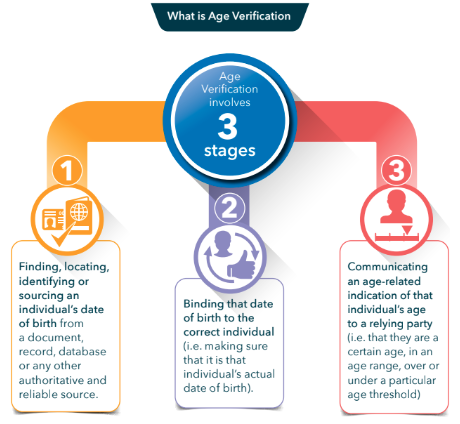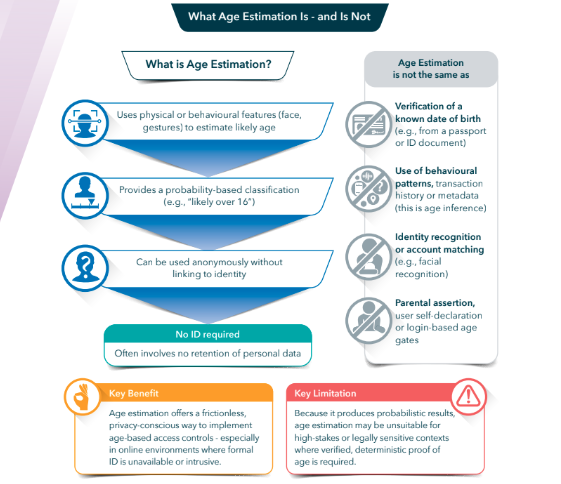Online age verification can be done effectively, but there's no "one-size-fits-all" solution, a major study commissioned by the government as part of its social media ban has found.
But it also identified risks to privacy, potential bias and issues with accuracy, depending on the method used.
The study examined multiple approaches to check ages and dozens of companies was released last night, a few months out from the start of Australia's ban on social media use for children under 16.
READ MORE: Houthis storm UN building after Israel killed PM and other ministers

The report found age assurance could be done "privately, efficiently and effectively" and there were "substantial technological limitations preventing its use.
But there were concerns around cybersecurity, and unnecessarily keeping users' data.
"This report is the latest piece of evidence showing digital platforms have access to technology to better protect young people from inappropriate content and harm," Communications Minister Annika Wells said.
"While there's no one-size-fits-all solution to age assurance, this trial shows there are many effective options and importantly that user privacy can be safeguarded."
Broadly speaking, age verification by checking against a government document was found to be accurate, with a robust approach to security.
The technology even did a decent job of identifying fakes generated by artificial intelligence, although some providers didn't have the ability to do live checks against government databases.
READ MORE: Stabbed Woolworths worker 'no longer feels safe' in Melbourne

There were concerns "a minority" of providers were keeping too much data in case it was requested of them at a later date.
This included the retention of full biometric or document data for all users, even when such retention was not required or requested," the report noted.
"While these practices may be motivated by a desire to assist regulators or coroners in rare and serious circumstances, they carry significant privacy risks and require clearer regulatory guidance to ensure proportionality."
One of the benefits of age estimation – using a user's physical or behavioural features to guess their age – is that it removes the need to share sensitive documents such as IDs.
READ MORE: Protesters clash as anti-immigration rallies take over major cities

The report, carried out by the UK-based Age Check Certification Scheme (ACCS), described it as a "frictionless, privacy-conscious" approach, but even the best age estimation tech could only manage an average accuracy of about 1.3-1.5 years.
The report described a grey zone about two to three years either side of the age cut-off with higher uncertainty, raising potential problems for using it as the only method to control access.
"It is a fundamental misunderstanding of the capabilities of age estimation to test whether it can implement exactly a specific age-restriction without either accepting there will be a margin of error or applying a buffer age to reduce that margin to an acceptable level, acknowledging that false negatives will then be inevitable and alternative methods will be required to correct them," the report noted.
It also had drawbacks not present in the ID-based age verification when it came to identifying non-white users.
READ MORE: Man arrested in Porepunkah says he's never met alleged cop killer

"Underrepresentation of Indigenous populations, particularly First Nations and Torres Strait Islander Peoples, remains a challenge that vendors are beginning to address through dataset expansion and fairness auditing," the report found.
Age inference, which uses behavioural patterns, contextual data, digital interactions or metadata – as opposed to either hard documents or biometric data – also offered strong privacy benefits but would need tailoring to specific contexts and had problems with bias.
The report looked into tech from 48 different providers covering age verification, estimation and inference, along with a so-called "waterfall" approach using multiple methods, and parental-based options.
ACCS stressed it was "not a set of policy recommendations or endorsements for certain types of age assurance technology".
Facebook, Instagram, Snapchat, TikTok, X (formerly Twitter), YouTube and other affected social media platforms will have to take reasonable steps to prevent Australians under 16 from accessing them from December 10.
Failure to do so could prompt fines of up to $49.5 million.
DOWNLOAD THE 9NEWS APP: Stay across all the latest in breaking news, sport, politics and the weather via our news app and get notifications sent straight to your smartphone. Available on the Apple App Store and Google Play.
from 9News https://ift.tt/y2kzqSx
via IFTTT
Comments
Post a Comment